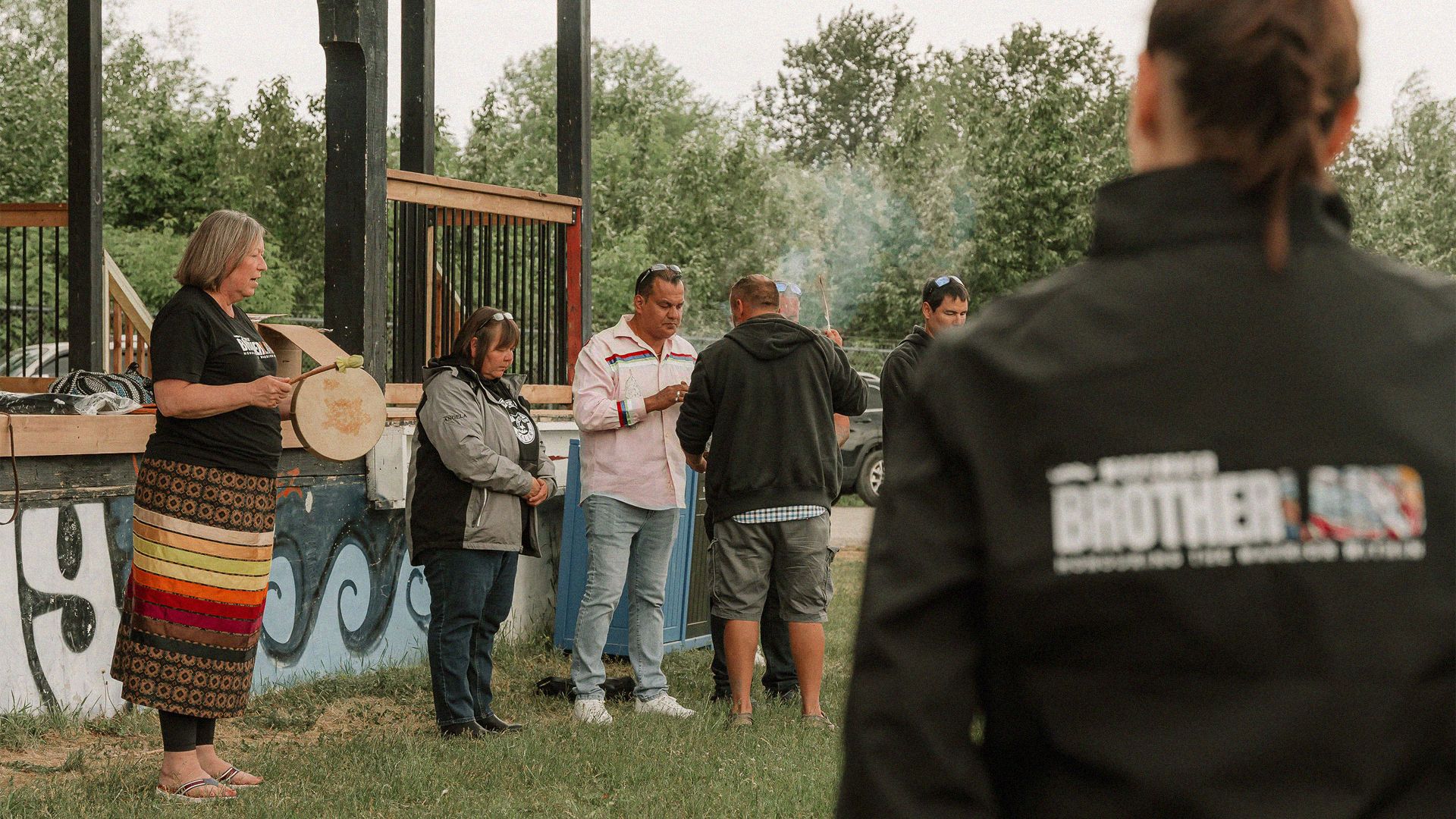

Work 2 Give: Reconciliation in action
Truth and Reconciliation Day is September 30 in Canada.
It starts with recognizing the truth of our colonial history; the harms of colonialism, racism and intergenerational trauma and how Canada as a nation has impacted our Indigenous brothers and sisters.
These traumas have impacted the overall well-being of Indigenous men. Living without a home, living below the poverty line, having a family that was disrupted generationally because of residential schools, child welfare, or early incarceration – all of this impacts how you’re able to connect and be in relationships.
The truth
We have a saying here in Winnipeg that I’ve heard often, “My first institution was residential school or child welfare, and my second institution was the prison.”
Since the Second World War, disproportionate numbers of Indigenous people in Canada have been incarcerated. Despite attempts to reverse the trend throughout the 1980s and 1990s, a Royal Commission on Aboriginal Peoples found that ‘the justice system has failed Aboriginal people’ - a problem that continues today.
Indigenous men represent 20% of the prison population nationally while only making up 2.5% of the entire population. Findings from the Office of the Correctional Investigator’s 2021-2022 Annual Report revealed that Indigenous people were 40% more likely to attempt suicide than non-Indigenous people. And in 2020/21, 83% of suicides within the Canadian prison system were Indigenous people.
Bringing reconciliation to life
All people have certain needs. We need to belong. We need to know that we belong somewhere. We need to know that we can take care of ourselves, that we have a level of independence. We need to know that we’re good at something, that we have gifts. And we need to know that there’s a place for us to give back in the community. These come from Dakota teachings. When some of those pieces are missing, it can lead to poor health outcomes.
Work 2 Give, a Movember-funded program, brings reconciliation to life. Work 2 Give is a program that offers inmates, aged between 18-89, the opportunity to take part in meaningful work, making items such as bunk houses, beds, drums and other items that Indigenous communities identify they need. These items are then given to those communities as an act of generosity. Participants in the program learn employment skills, adopt positive social values, and share these skills and gifts back to the community. In doing this the Indigenous men participating get to claim their truth. They get to claim the fact that they made mistakes, but that there was a whole list of trauma behind how they got there. Mistakes that came from reasons or decisions that weren’t always up to them.
Many of the men involved in Work 2 Give have been gravely impacted by colonialism, with parents or grandparents raised in residential school, poverty and incarceration. They get to understand more about the hardship they may have been born into, and reclaim who they are, beyond the mistakes they made. Reconciliation gives us all an opportunity to begin repairing those harms, to give back and support healing.
Reciprocity between the participants and the community
The reconciliation piece is recognizing the gifts they have. That they have a generosity in their heart still, that hasn’t been taken from them. Through Work 2 Give, they get to give back to their communities. Here, they get that sense of belonging they may have never known. They haven’t just reclaimed these connections for themselves, but they’ve helped communities reclaim them too.
There are all walks of life in the program. Older men, younger men, Indigenous men from all across the country. There are many different nations. What unites them, is that they’re Indigenous. Whatunites them, is a sense of hope. This hope is realized through the inherent strength of the culture they come from, but also the connection with community.
Past evaluations of the program have show that there’s a real sense of reciprocity between the community and the men. The community cared about how the men were doing inside, how they were healing, and the men were thankful for the gifts they were able to give the community. A recent stat showed that 40% of the men who participated in Work 2 Give who have left prison have stayed connected to the program, and the community. It’s in these moments that we see that the men have found their voice, they can see their inherent value, and they’re making change happen.
Movember walking in allyship with our Indigenous brothers and sisters
Movember’s role in this process of truth and reconciliation is to help facilitate these opportunities for reciprocity between the participant and the community. We’re not only investing in the program, but in the agency and voice of Indigenous people to be their own change. Today, we honour survivors and recognize the role we play in this process. We hope to also facilitate a broader dialogue. One that reminds us that we are all related. Ndinawemaaganag means “all our relations” in Ojibwa. It acknowledges our place, the place of others, and how we all walk alongside each other in life, on this path of truth and reconciliation.